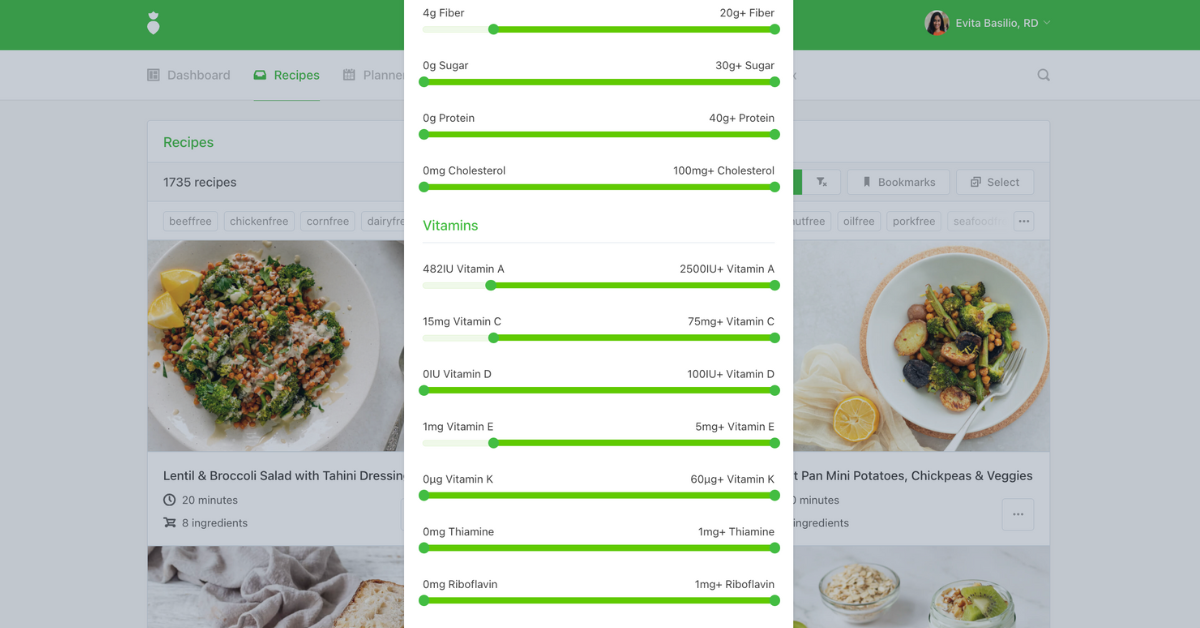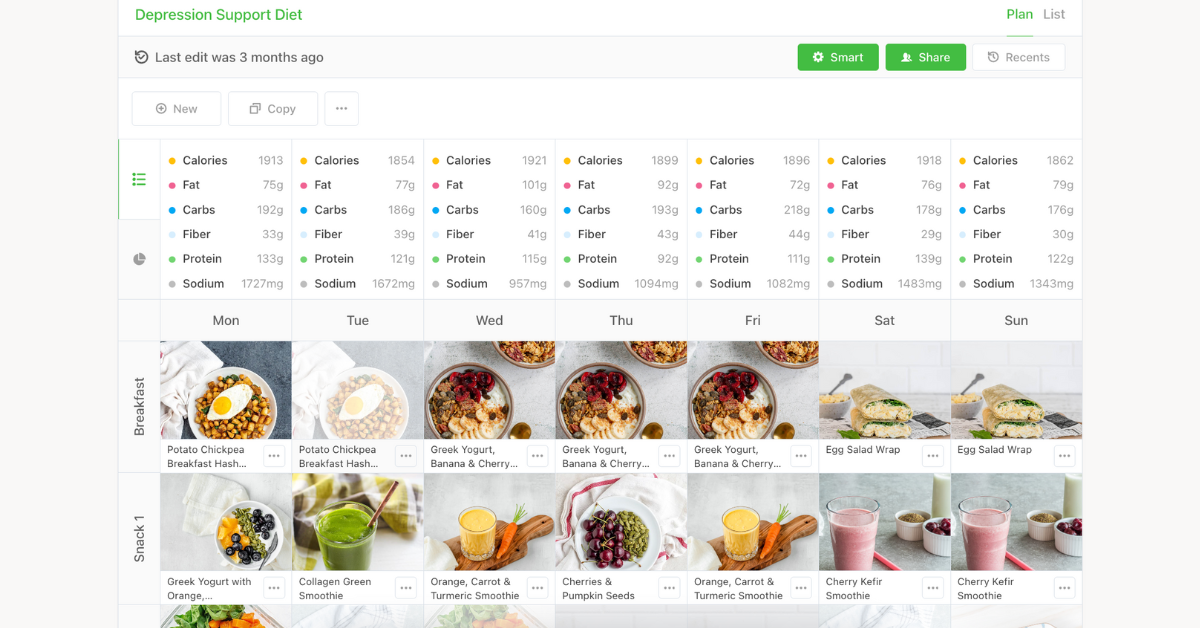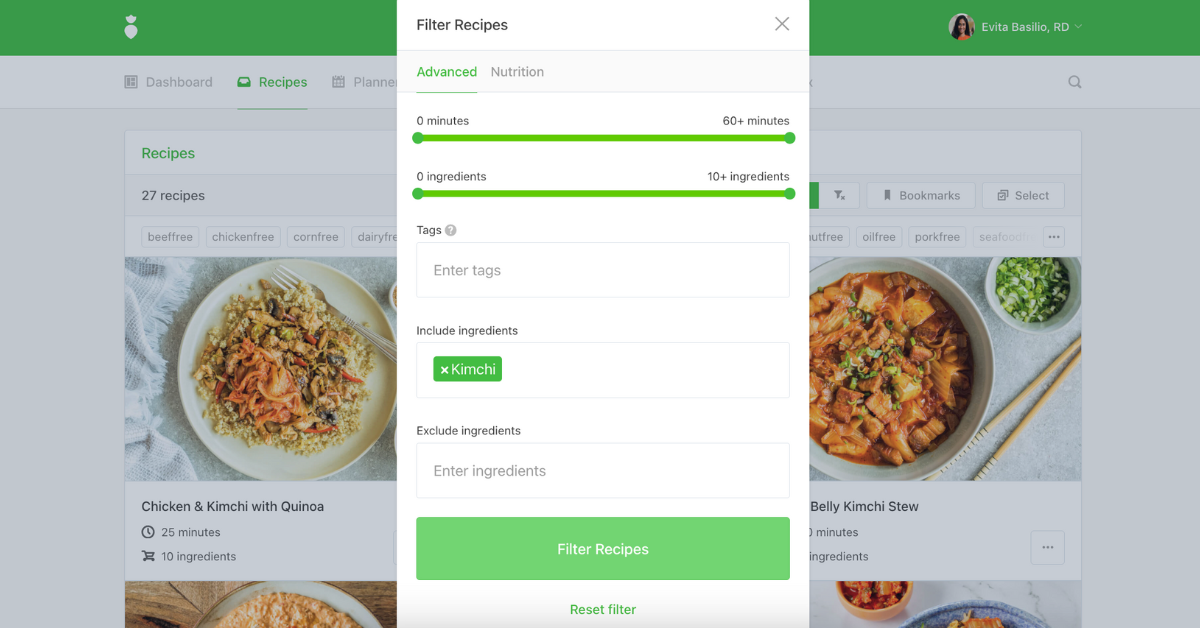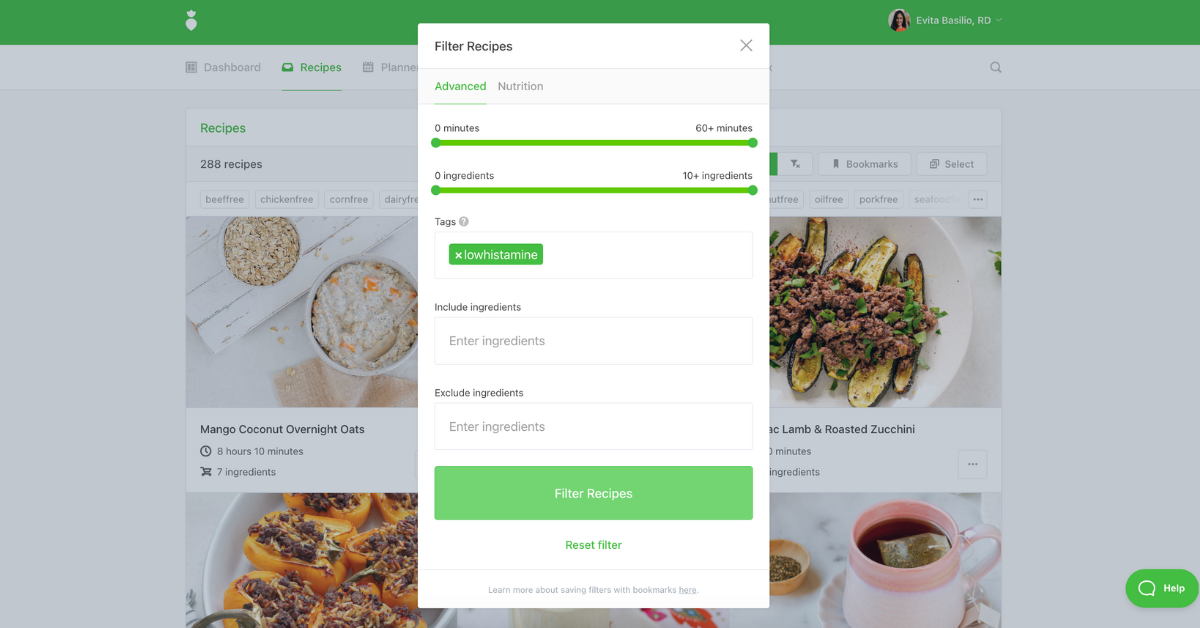Mental health is all about how you feel and think. Mental health disorders are conditions that affect your emotional and mental well-being. They can show up in different ways and vary in severity.
According to the Centers for Disease Control (CDC), 1 in 5 U.S. adults will experience a mental illness in any given year, and over 50% of adults will be diagnosed with a mental health disorder at some point in their lifetime.
Understanding mental health disorders is essential for nutrition practitioners to provide effective, holistic care that addresses physical and mental well-being. Beyond traditional therapy, adding specific nutritional interventions has shown promise for improving outcomes in conditions like depression and anxiety.
To better understand the link between nutrition and mental health, we turn to Dr. Kate Kresge, an expert in functional medicine. As the Head of Medical Education at Rupa Health's Rupa University, Dr. Kresge brings a wealth of knowledge and experience to the table, advocating for a root-cause testing and food-as-medicine approach to the treatment and management of mental health disorders, including anxiety and depression.

Micronutrient Treatment of Depression
As a nutrition practitioner helping clients with depression, your first step is to understand how targeted nutrition interventions can complement traditional treatments.
The Root Causes of Depression
The link between depression and oxidative stress, inflammation, and nutrient deficiencies can provide valuable insight into the root causes of the disorder, allowing for personalized treatment and improved health outcomes.
Depression and Inflammation
Research has found that depression is linked with inflammation and higher levels of oxidative stress within the body. Increased oxidative stress is associated with lower total antioxidant capacity, which can set the stage for cell membrane disruptions, cell signaling disruptions, and chronic disease.
One way to analyze a client’s total antioxidant capacity is through nutrition software programs that examine their intake of macronutrients, vitamins, minerals, omega-3s, and fiber, among other things.
For example, Practice Better's Food & Mood Journal helps you gain insight into your clients' nutrient intake and mood in relation to their food choices. You can use this information to create a nutrition plan that then boosts their intake of certain nutrients and continues to track the changes.
Tip: That Clean Life allows you to create nutrition plans to help clients reach their daily antioxidant capacity needs by filtering to easily find recipes with antioxidant-rich foods and nutrients.

By setting specific goals for nutrient intake, you can provide clients with a structured path to achieving their wellness objectives.
When analyzing this data, practitioners sometimes find it difficult for clients to get 100% of the nutrients their body needs daily and may suggest supplements to fill in any nutritional gaps.
The Link between Depression and Other Mental Health Disorders
According to Dr. Kresge, depression is often linked with other mental health disorders, including general anxiety disorder, ADHD, and substance abuse disorders, as they share many of the same root causes.
The existence of other conditions can complicate the diagnosis and treatment of depression, highlighting the importance of a comprehensive and integrated approach to care.
Kresge explains, “Our old paradigm of DSMV and talk therapy left the body out of the story. But the DSMV says you have to rule out medical conditions before you can diagnose someone with a psychological illness. Nutrition plays a major role in addressing these issues.”
Taking a Food-As-Medicine Approach to Depression
As a healthcare practitioner, taking a food-as-medicine approach to depression highlights the significant link between nutrition and mental health.
By assessing your clients’ micronutrient and antioxidant intake, as well as nutrient deficiencies through various biomarkers, you’ll gain valuable insights into potential contributing factors to their depression.
Rupa Health’s custom blood panel allows you to examine your clients’ nutritional status using various biomarkers, including red blood cell Omegas, serum vitamin D, and B vitamins.
Tip: You can easily integrate your Rupa Health account with Practice Better to order, receive, view, and share lab results directly from the portal.
Role of Vitamin B6 in Depression
As a practitioner, you may find that your clients have nutritional deficiencies that are linked with depressive symptoms. For example, research has found that deficiencies in protein, B vitamins, vitamin D, magnesium, selenium, zinc, iron, calcium, and omega-3s may increase the chance of developing depression.
The CDC reports that one of the most common nutritional deficiencies in the U.S. is vitamin B6. This is of particular concern as vitamin B6 is needed to make dopamine, a key neurotransmitter in mental health.
Tip: Use That Clean Life to filter for recipes high in vitamin B6 and easily incorporate vitamin B6-rich foods into your client’s diet. Your clients can boost their intake of this key nutrient by selecting recipes with ingredients like poultry, fish, beans, nuts, seeds, and leafy greens.

If your clients struggle to hit their vitamin B6 goals through food and are severely deficient, Kresge notes that you only need to supplement with 10 mg of the vitamin daily. Anything beyond 1,000 mg a day may lead to neurological symptoms.
Role of Omega 3s in Depression
Omega-3 fatty acids are found to be linked with depression; as Kresge explains, “depressed people are much more likely to have lower red blood cell Omega-3s than their counterparts who are not depressed.”
Salmon, flax seeds, chia seeds, and walnuts are good food sources of omega-3 fatty acids. You can use That Clean Life's filters to find recipes with these ingredients and add them to your client's protocol.
For clients who are not meeting their recommended amount of omega-3s through food alone, Kresge recommends supplementation to improve depression of “at least 1 gram per day.”
Tip: That Clean Life offers done-for-you templates, such as a Depression Support Diet and a Plant-Based Depression Support Diet that incorporate foods to help with depression and help prevent common nutrient deficiencies while boosting the intake of certain nutrients that can improve symptoms.

Micronutrient Treatment of Anxiety
According to the National Institute of Mental Health, anxiety is the most common mental health disorder in the U.S. Micronutrient treatment of anxiety explores the potential role of vitamins, minerals, and other micronutrients to help manage symptoms of anxiety for your clients.
The Root Causes of Anxiety
Certain nutrients, such as iron, vitamin C, B6, and omega-3s, play important roles in anxiety management:
- Research shows that low levels of iron and vitamin B6 are associated with panic attacks.
- A diet rich in antioxidants and supplementation with antioxidants can help treat anxiety.
- Studies show that supplementing with high doses of vitamin C (1 gram) is superior to a placebo for controlling anxiety.
- Omega-3s have been linked to reduced anxiety. One study found that supplementation with 3 grams of omega-3’s for people with substance use disorder significantly reduced their anxiety and anger scores.
How to Test for Deficiencies
Dr. Kresge recommends the following tests to determine the root causes of anxiety and panic attacks:
- Iron panel with ferritin
- Red blood cell omega 3s
- Serum B6 and C
- Neurotransmitter metabolite testing
Role of Histamine in Anxiety Attacks
Histamine, a chemical messenger in the body, can play a role in hyperventilation and panic attacks through its effects on the respiratory and nervous systems.
Additionally, histamine can stimulate the release of adrenaline and other stress hormones, triggering the body's "fight or flight" response and intensifying feelings of anxiety and panic. In people with certain sensitivities or imbalances in histamine levels, this can lead to heightened respiratory symptoms and panic attacks.
If you’re concerned about histamine, Kresge recommends IgE allergy testing, serum tryptase, or whole-blood histamine.
Kresge notes the importance of testing your clients for food sensitivities and allergies. She explains, “If they have panic disorder or anxiety, you may find that histamine is the root of many of their symptoms.”
Taking a Food-As-Medicine Approach to Anxiety
This approach involves incorporating foods that help with anxiety into your client’s daily intake.
Add Iron, Vitamin C, B6, and Omega-3s to a Client Plan
Iron, vitamin C, B6, and omega-3 fatty acids are important nutrients for anxiety management. You can use That Clean Life to provide clients with foods high in these specific nutrients, helping them address nutrient insufficiencies, manage their symptoms, and improve their quality of life.
Tip: That Clean Life's High Iron and Plant-Based High Iron programs provide a variety of high iron foods daily combined with foods high in vitamin C and A to boost absorption and separated from calcium-rich foods which can inhibit absorption. B vitamin needs are met to help make healthy red blood cells and manage anxiety.

Add Food sources for GABA
GABA is a neurotransmitter that helps calm the brain and regulate anxiety by promoting a feeling of relaxation. Dr. Kresge explains that fermented foods can significantly increase the bioavailability of GABA.
Tip: With That Clean Life's ingredients filter, you can easily incorporate sauerkraut, kimchi, miso, and tempeh into your clients' meal plans to help increase their intake of fermented foods, which may provide relief from anxiety symptoms.

Using a Low Histamine Approach
Clients with certain sensitivities or imbalances in histamine levels can benefit from a low histamine diet to help manage their anxiety.
Tip: That Clean Life offers a low histamine tag for recipes and low histamine templates for clients with anxiety who may benefit from trying a low histamine diet. This allows you to easily create meal plans and find recipes that prioritize low histamine foods.

That Clean Life also offers Stress & Anxiety Support and Plant-Based Stress & Anxiety Support programs. These customizable templates provide comprehensive meal plans and recipes tailored to address a client's nutritional needs who may need help managing stress and anxiety.
The Bottom Line
Applying micronutrient treatments for mental health disorders, as discussed by Dr. Kate Kresge, offers a promising way to support your clients struggling with anxiety and depression.
By recognizing the link between nutrition and mental health and using targeted dietary interventions in your practice, you can offer holistic and personalized care to address the underlying nutrient imbalances that may be contributing to the problem.
We hope this helps you take an integrative approach to support your clients' symptoms, long-term health, and well-being.
Watch Dr. Kresge's lesson as part of the Mental Health Masterclass Series to discover holistic approaches to mental health care and optimize your clients’ mental well-being today.

